
Kip Jones, a pioneer in Performative Social Science at Bournemouth University (BU), has two substantial book Chapters now available in texts published by Wiley-Blackwell and Palgrave Macmillan. Both texts move the practice of arts-led research forward substantially and will become valued resources for students and researchers for years to come.
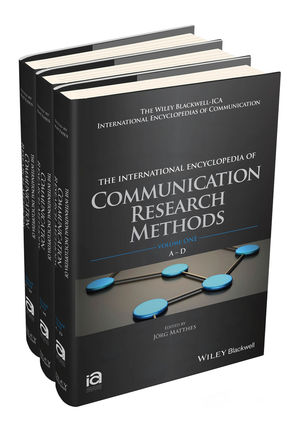 The first Chapter, “Performative Social Science”, in J. P. Matthes, C. S. Davis, & R. F. Potter (Eds.), The International Encyclopedia of Communication Research Methods, rehearses the development of Performative Social Science (PSS) as a research approach and method, developed over ten years at Bournemouth University through publication, film, research, workshops, Masterclasses, and PhD studies. Jones explains that PSS is not simply ‘art for art’s sake’ instead of research. PSS is research and dissemination practices based in the philosophy of Relational Aesthetics and has much in common with Social Constructionism. The ‘audience’ or reader/viewer are key to PSS, as is the wider community.
The first Chapter, “Performative Social Science”, in J. P. Matthes, C. S. Davis, & R. F. Potter (Eds.), The International Encyclopedia of Communication Research Methods, rehearses the development of Performative Social Science (PSS) as a research approach and method, developed over ten years at Bournemouth University through publication, film, research, workshops, Masterclasses, and PhD studies. Jones explains that PSS is not simply ‘art for art’s sake’ instead of research. PSS is research and dissemination practices based in the philosophy of Relational Aesthetics and has much in common with Social Constructionism. The ‘audience’ or reader/viewer are key to PSS, as is the wider community.
This 3-volume Encyclopedia is touted as the most current authoritative single-source reference on communication methods. The editors state that they have invited the best scholars from all over the world to accomplish this. Jones’ Chapter (draft) is now available at: https://www.academia.edu/22126458/Performative_Social_Science
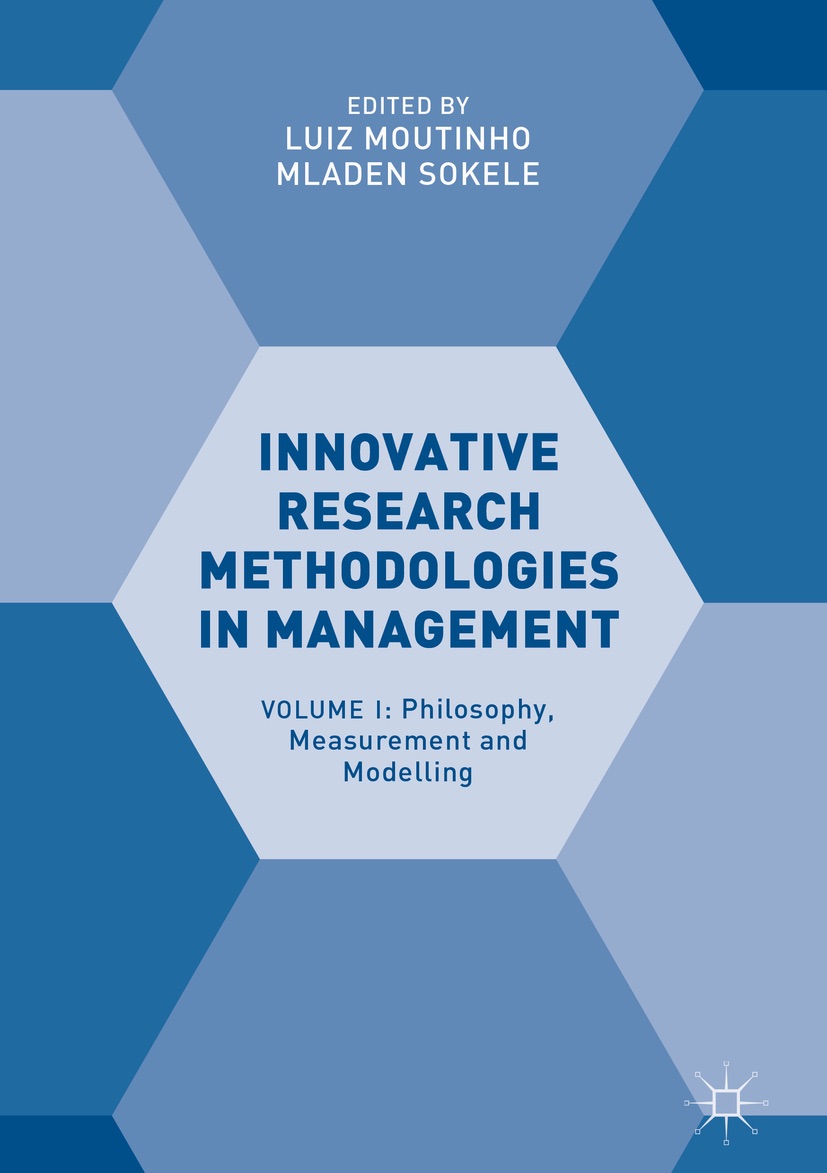 The second Chapter, “Emotivity and Ephemera Research”, in Innovative Research Methodologies in Management: Volume I, edited by L. Moutinho and M. Sokelem provides an in-depth worked example of PSS. The Chapter reports on a two-day experimental workshop in arts-led interviewing technique using ephemera to illicit life stories and then reporting narrative accounts back using creative means of presentation. The workshop took place at Bournemouth and participants were all University faculty members. A key to the process was in replicating what research participants may be feeling and going through when they share very personal stories with researchers. The exercise built a respect for this process by acknowledging that fact through the personal experiences and emotive connectivity of workshop participants.
The second Chapter, “Emotivity and Ephemera Research”, in Innovative Research Methodologies in Management: Volume I, edited by L. Moutinho and M. Sokelem provides an in-depth worked example of PSS. The Chapter reports on a two-day experimental workshop in arts-led interviewing technique using ephemera to illicit life stories and then reporting narrative accounts back using creative means of presentation. The workshop took place at Bournemouth and participants were all University faculty members. A key to the process was in replicating what research participants may be feeling and going through when they share very personal stories with researchers. The exercise built a respect for this process by acknowledging that fact through the personal experiences and emotive connectivity of workshop participants.
The Editors of this book on management were keen to include the Chapter, stating that many who are attempting a PhD, particularly using a qualitative approach, spend little or no effort in finding, then learning, an appropriate method for their research question. The felt that the Chapter would contribute substantially in this way to management studies. The Chapter was originally published as “A report on an arts-led, emotive experiment in interviewing and storytelling” in The Qualitative Report, 20(2), 86-92 and is available here: https://www.academia.edu/10835482/A_Report_on_an_Arts-Led_Emotive_Experiment_in_Interviewing_and_Storytelling
It is examples like these that substantiate the work being done not only by Jones, but by other members of the Centre for Qualitative Research (CQR) at Bournemouth University. Membership of CQR comes from across Health and Social Sciences’ disciplines at BU as well as from a number of other BU faculties, This attraction attests to the universal appeal of qualitative methods and particularly arts-led ones, including Performative Social Science, which are being developed through CQR.
 The Centre for Qualitative Research welcomes new members and invites them to contribute to our on-going and successful Seminar Series in the coming Academic Year.
The Centre for Qualitative Research welcomes new members and invites them to contribute to our on-going and successful Seminar Series in the coming Academic Year. Some possibilities:
Some possibilities:

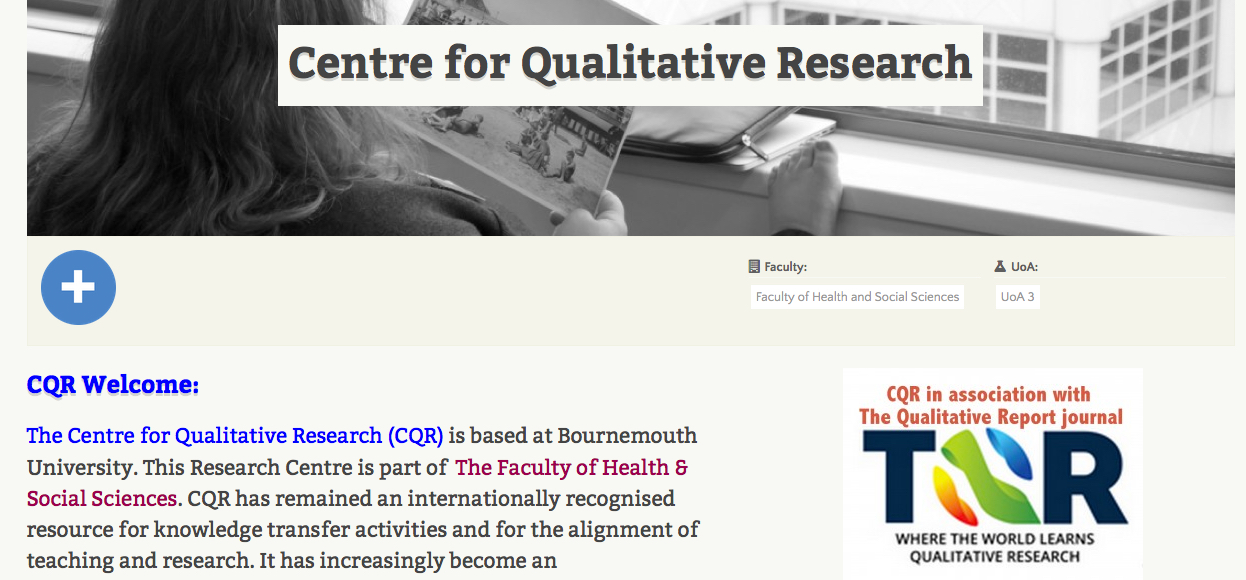


 The Centre for Qualitative Research is pleased to announce that its Deputy Director, Caroline Ellis-Hill, will be keynoting at the 41st ASSBI Annual Brain Impairment Conference in Adelaide, Australia on the 4th -5th May 2018. Ellis-Hill will speak on “Lifeworld-led rehabilitation – a new approach to support psycho-social well-being following brain injury”.
The Centre for Qualitative Research is pleased to announce that its Deputy Director, Caroline Ellis-Hill, will be keynoting at the 41st ASSBI Annual Brain Impairment Conference in Adelaide, Australia on the 4th -5th May 2018. Ellis-Hill will speak on “Lifeworld-led rehabilitation – a new approach to support psycho-social well-being following brain injury”. 
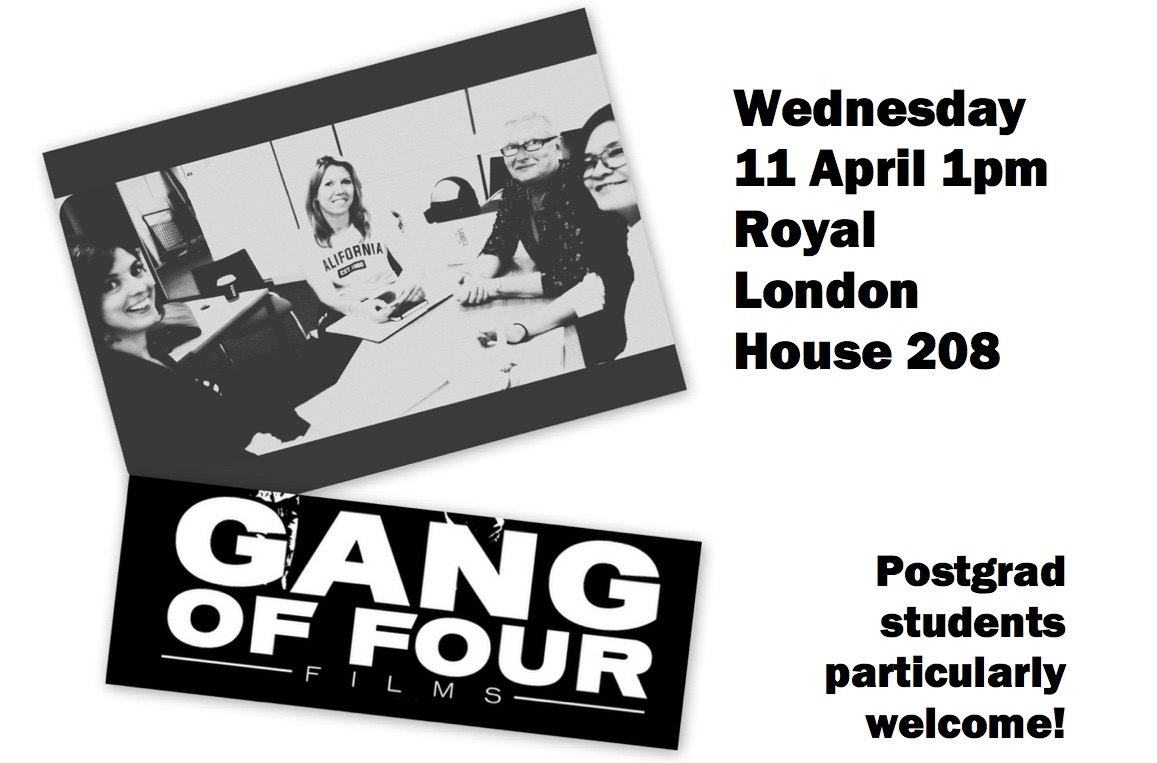

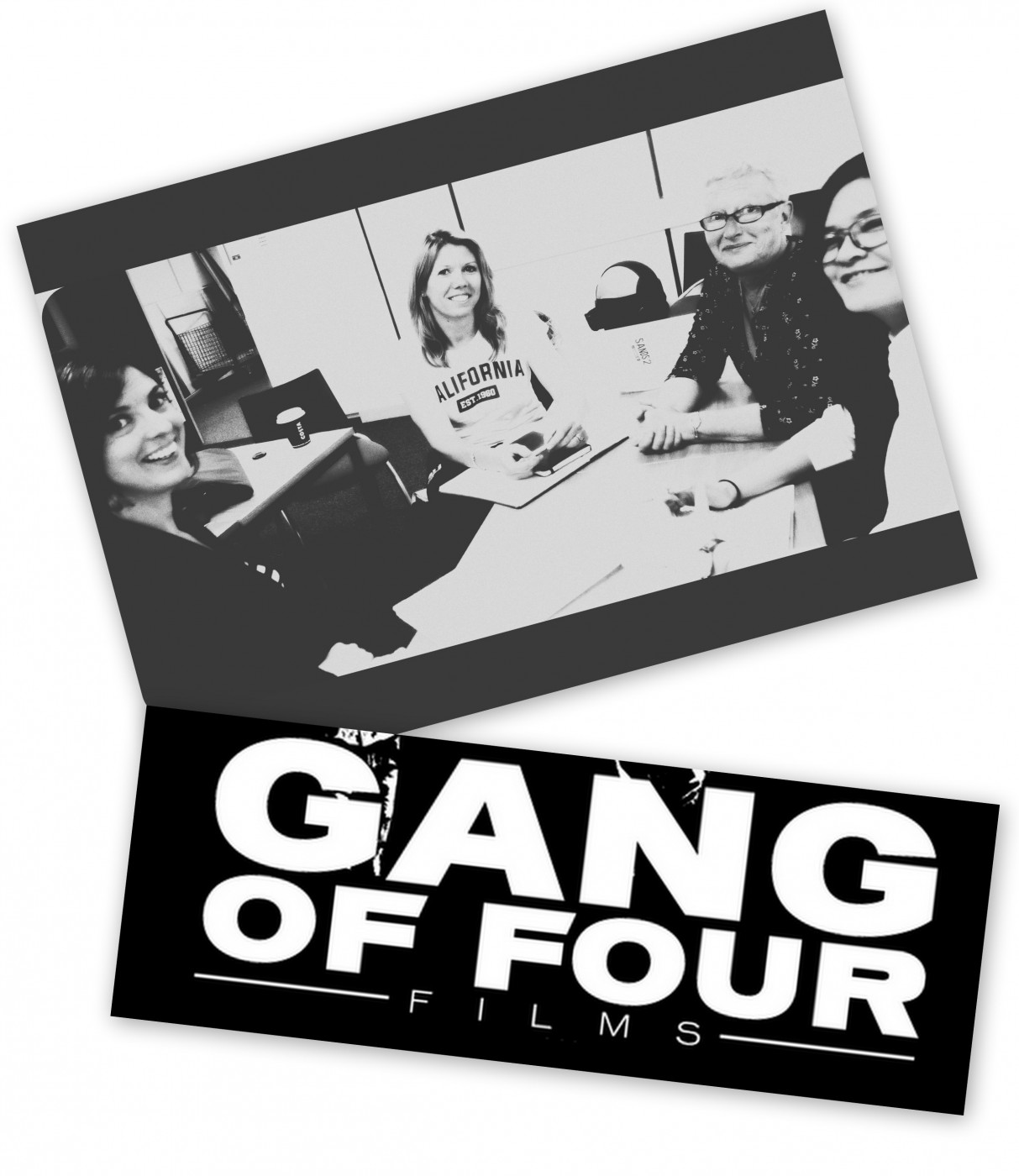

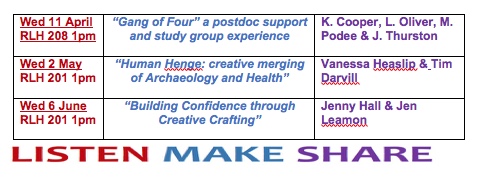
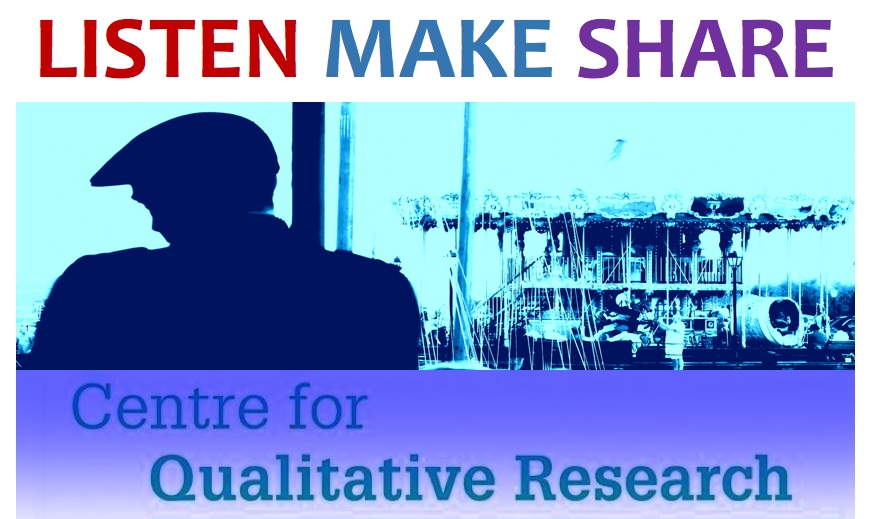
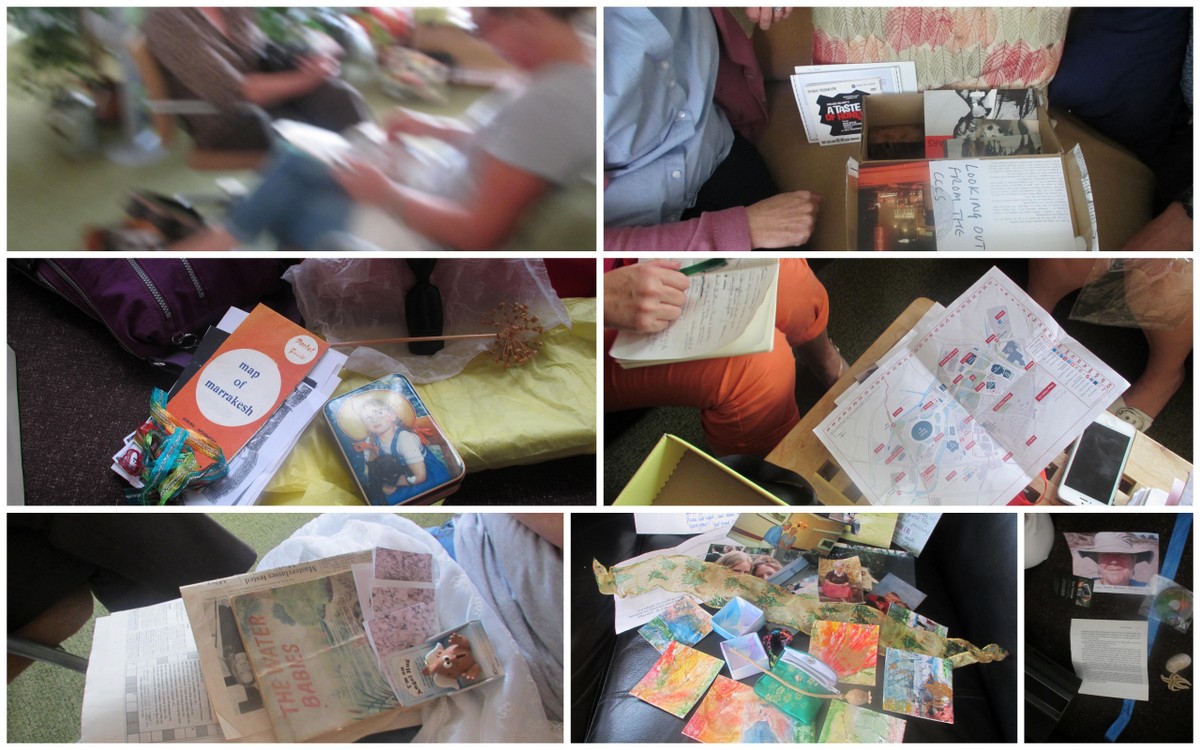

 The first Chapter, “Performative Social Science”, in J. P. Matthes, C. S. Davis, & R. F. Potter (Eds.), The International Encyclopedia of Communication Research Methods, rehearses the development of Performative Social Science (PSS) as a research approach and method, developed over ten years at Bournemouth University through publication, film, research, workshops, Masterclasses, and PhD studies. Jones explains that PSS is not simply ‘art for art’s sake’ instead of research. PSS is research and dissemination practices based in the philosophy of Relational Aesthetics and has much in common with Social Constructionism. The ‘audience’ or reader/viewer are key to PSS, as is the wider community.
The first Chapter, “Performative Social Science”, in J. P. Matthes, C. S. Davis, & R. F. Potter (Eds.), The International Encyclopedia of Communication Research Methods, rehearses the development of Performative Social Science (PSS) as a research approach and method, developed over ten years at Bournemouth University through publication, film, research, workshops, Masterclasses, and PhD studies. Jones explains that PSS is not simply ‘art for art’s sake’ instead of research. PSS is research and dissemination practices based in the philosophy of Relational Aesthetics and has much in common with Social Constructionism. The ‘audience’ or reader/viewer are key to PSS, as is the wider community. The second Chapter, “Emotivity and Ephemera Research”, in Innovative Research Methodologies in Management: Volume I, edited by L. Moutinho and M. Sokelem provides an in-depth worked example of PSS. The Chapter reports on a two-day experimental workshop in arts-led interviewing technique using ephemera to illicit life stories and then reporting narrative accounts back using creative means of presentation. The workshop took place at Bournemouth and participants were all University faculty members. A key to the process was in replicating what research participants may be feeling and going through when they share very personal stories with researchers. The exercise built a respect for this process by acknowledging that fact through the personal experiences and emotive connectivity of workshop participants.
The second Chapter, “Emotivity and Ephemera Research”, in Innovative Research Methodologies in Management: Volume I, edited by L. Moutinho and M. Sokelem provides an in-depth worked example of PSS. The Chapter reports on a two-day experimental workshop in arts-led interviewing technique using ephemera to illicit life stories and then reporting narrative accounts back using creative means of presentation. The workshop took place at Bournemouth and participants were all University faculty members. A key to the process was in replicating what research participants may be feeling and going through when they share very personal stories with researchers. The exercise built a respect for this process by acknowledging that fact through the personal experiences and emotive connectivity of workshop participants.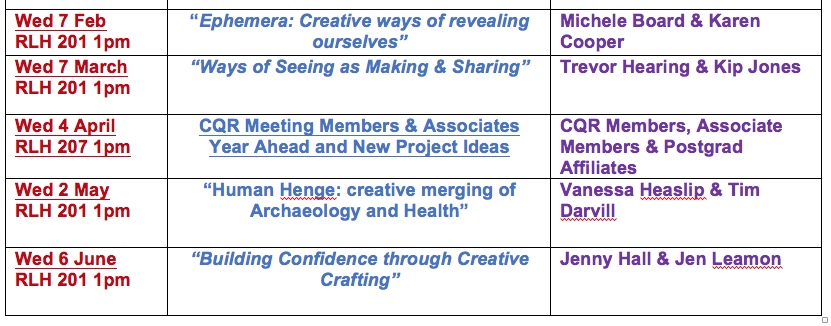

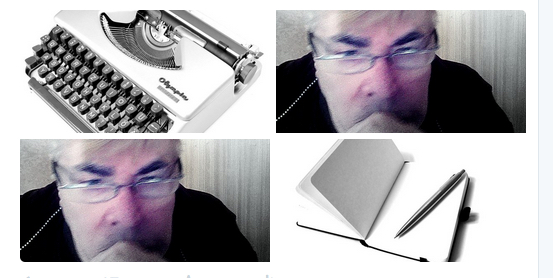
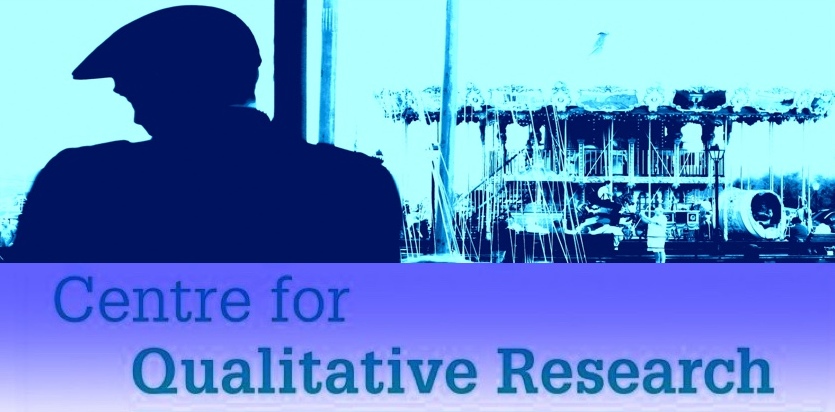


 Not to be missed!
Not to be missed!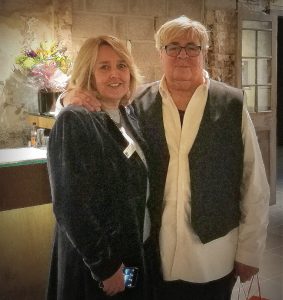











 BU attendance at third annual GCPHR meeting in June
BU attendance at third annual GCPHR meeting in June Interactive Tangible and Intangible Heritage Applications – BU student work featured in new book chapter
Interactive Tangible and Intangible Heritage Applications – BU student work featured in new book chapter Second NIHR MIHERC meeting in Bournemouth this week
Second NIHR MIHERC meeting in Bournemouth this week MSCA Postdoctoral Fellowships 2025 Call
MSCA Postdoctoral Fellowships 2025 Call ERC Advanced Grant 2025 Webinar
ERC Advanced Grant 2025 Webinar Horizon Europe Work Programme 2025 Published
Horizon Europe Work Programme 2025 Published Horizon Europe 2025 Work Programme pre-Published
Horizon Europe 2025 Work Programme pre-Published Update on UKRO services
Update on UKRO services European research project exploring use of ‘virtual twins’ to better manage metabolic associated fatty liver disease
European research project exploring use of ‘virtual twins’ to better manage metabolic associated fatty liver disease